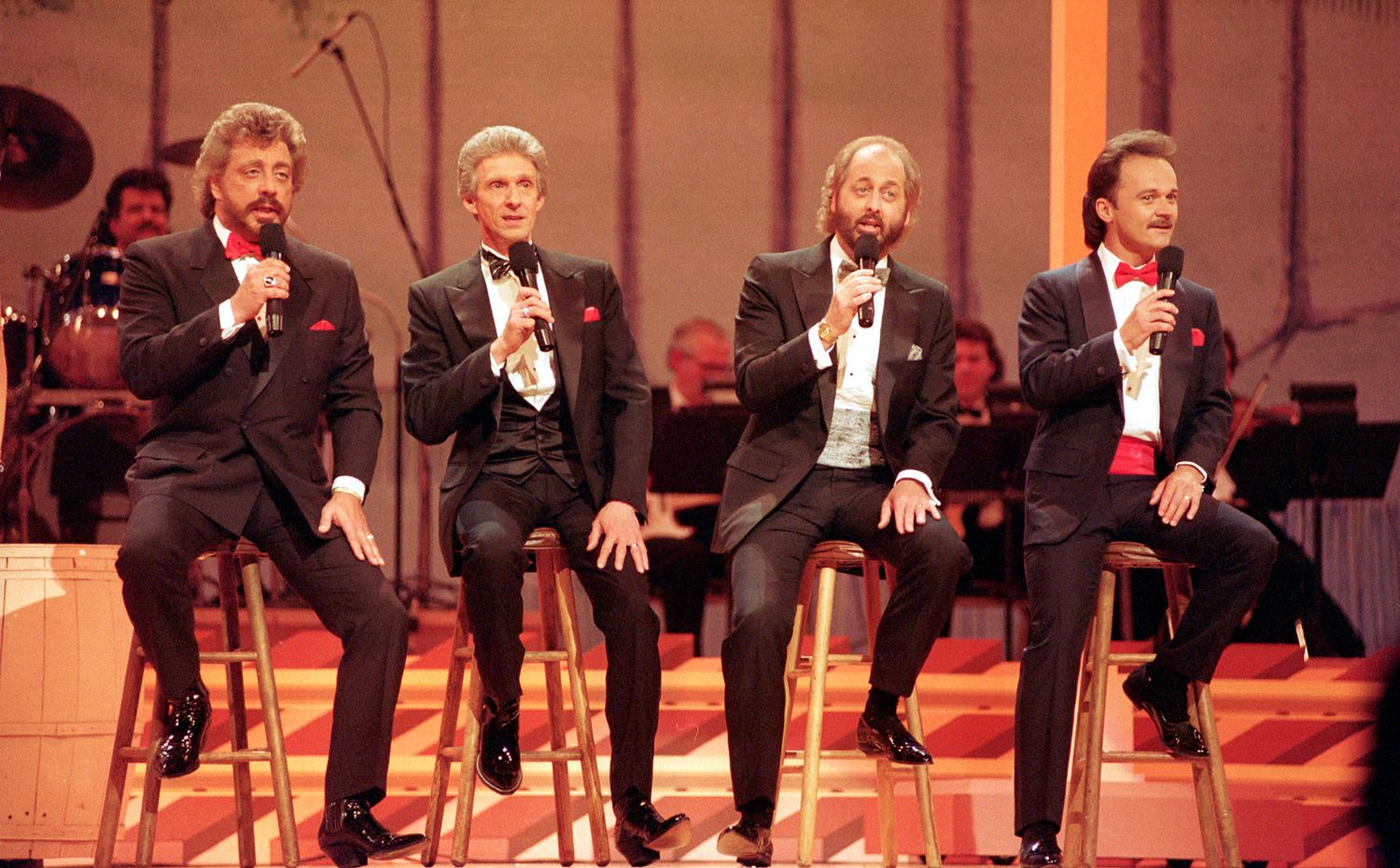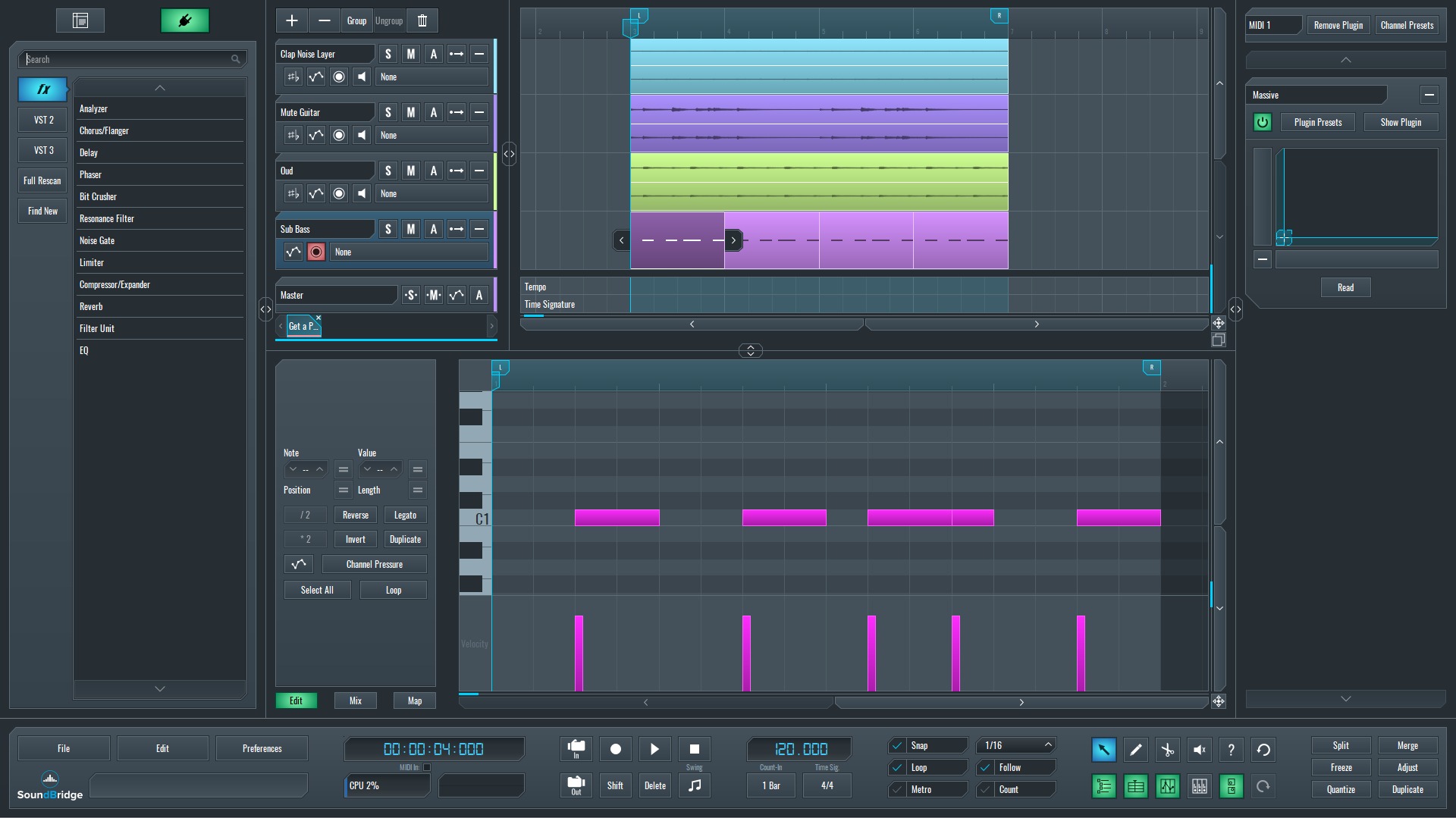Home>Instruments>Bass>What Is A Bass Singer


Bass
What Is A Bass Singer
Modified: January 22, 2024
Learn everything about the bass singer, their unique vocal range and role in a choir. Discover why being a bass is essential to harmony and musical depth.
(Many of the links in this article redirect to a specific reviewed product. Your purchase of these products through affiliate links helps to generate commission for AudioLover.com, at no extra cost. Learn more)
Table of Contents
Introduction
When it comes to the world of vocal music, the bass singer holds a special place. With a deep, resonant voice that can shake the rafters and captivate audiences, the bass singer is an integral part of many musical genres, from classical to gospel to barbershop quartets. In this article, we will explore the fascinating world of bass singers, discussing their vocal range, characteristics, and the important role they play in choirs and vocal ensembles.
A bass singer is typically defined as a male vocalist with a low vocal range, capable of producing rich, powerful low notes. The bass voice is characterized by its depth and timbre, often described as velvety, warm, and full-bodied. These singers have a natural ability to hit and sustain low notes with precision and clarity, providing a solid foundation for harmonies and adding richness to the overall sound.
One of the defining features of a bass singer is their vocal range. While there is some variation among individual voices, a typical bass singer can comfortably sing from the E2 note, two octaves below middle C, down to the C4 note or even lower. This broad vocal range allows bass singers to cover the lowest melodies and harmonies in musical compositions, creating a powerful and resonant sound that can be felt deep within the listener’s soul.
Bass singers play a crucial role in choirs and vocal ensembles, providing the foundation upon which the other vocal parts build upon. Their low, rumbling notes add depth and richness to the overall texture of the music, creating a sense of stability and grounding. In four-part choral arrangements, bass singers usually take on the role of singing the lowest part, known as the bass line or basso profundo, while the other voices harmonize above them. This creates a pleasing blend of voices and creates a well-rounded sound.
Outside of choral settings, bass singers also make a significant impact as soloists or in small vocal ensembles. Their deep, resonant voices can evoke a wide range of emotions, from the smooth and velvety tones of a romantic ballad to the powerful and commanding presence of an operatic aria. Bass singers often perform repertoire specifically written for their voice type, showcasing their unique vocal abilities.
Definition of a Bass Singer
A bass singer is a male vocalist who possesses a low vocal range, typically below the baritone range. They are known for their deep, resonant voice and the ability to hit and sustain low notes. Bass singers are an integral part of various musical genres, including classical, opera, gospel, jazz, and barbershop quartets.
The bass voice is characterized by its richness, depth, and timbre. It has a velvety quality that adds warmth and fullness to the overall sound. Bass singers often have a strong, commanding presence, with their low notes creating a powerful and resonant impact.
In terms of vocal range, bass singers generally have the ability to sing from the E2 note (two octaves below middle C) to the C4 note or even lower. This wide range allows them to cover the lowest melodies and harmonies in musical compositions, providing a solid foundation for other vocal parts to build upon.
It is important to note that while many male vocalists may have a lower range, not all of them can be classified as bass singers. The distinction lies in the unique characteristics and abilities of a true bass voice. Bass singers possess the natural ability to produce and control low notes with precision and clarity, creating a distinct and recognizable sound.
In choral settings, bass singers often sing the lowest part, known as the bass line or basso profundo. They provide the foundation and support for the other vocal sections, allowing for harmonies to be built upon their deep notes. This blending of voices creates a rich and balanced sound that is characteristic of choral music.
Outside of choral music, bass singers also excel as soloists or in small vocal ensembles. Their deep, resonant voices are capable of expressing a wide range of emotions and can be found in various musical styles. Whether they are performing classical arias, gospel solos, or jazz standards, bass singers captivate listeners with their powerful and captivating vocal abilities.
Vocal Range and Characteristics
A bass singer possesses a unique vocal range and set of characteristics that distinguish them from other singers. They are known for their deep, resonant voice and the ability to hit and sustain low notes with precision and clarity.
The vocal range of a bass singer typically extends from the E2 note, which is two octaves below middle C, to the C4 note or even lower. This wide range allows them to cover the lowest melodies and harmonies in musical compositions, providing a solid foundation for other vocal parts.
In terms of tone and timbre, the bass voice is characterized by its richness and depth. It has a velvety quality that adds warmth and fullness to the overall sound. When a bass singer sings, their voice resonates and reverberates, creating a captivating and powerful presence.
One of the defining characteristics of a bass singer is their ability to produce low notes with clarity and precision. They are able to maintain vocal control even in the lower register, ensuring that the audience can hear and understand every note they sing. This sets them apart and allows them to showcase the unique qualities of their voice.
Bass singers also have the ability to create a sense of gravitas and power through their vocal delivery. Their deep, resonant voice can convey a wide range of emotions, from commanding and authoritative to introspective and reflective. This versatility allows them to excel in a variety of musical genres, as they can adapt their voice to suit the mood and style of the music they are performing.
In choral settings, the bass singer often takes on the role of the bass line or basso profundo. They provide a solid foundation for the harmonies and help establish the overall balance and blend of the ensemble. Their low, rumbling notes add depth and richness, creating a powerful and harmonious sound.
Outside of choral music, bass singers can also shine as soloists or in small vocal ensembles. Their deep, resonant voice commands attention and creates a captivating presence on stage. Whether they are performing classical arias, jazz standards, or gospel solos, bass singers have the ability to captivate audiences with their unique vocal range and characteristics.
Role in Choirs and Vocal Ensembles
The bass singer plays a crucial role in choirs and vocal ensembles, contributing to the overall harmonious and balanced sound. Their deep, resonant voice provides the foundation upon which the other vocal parts build upon, creating a rich and full-bodied texture.
In four-part choral arrangements, the bass singer typically takes on the lowest vocal part, known as the bass line or basso profundo. They sing the foundational notes that establish the harmony and provide stability to the choir. By anchoring the lower register, the bass singer creates a solid base for the other voices to harmonize above, resulting in a pleasing and well-rounded sound.
While the bass part may seem simple, it is actually a critical component of choral music. The bass singer’s ability to accurately sing and sustain low notes ensures that the other voices can stay in tune and harmonize effectively. Their deep, resonant voice adds depth and richness to the overall choir sound, creating a strong and unified ensemble.
In addition to providing support for the other vocal sections, the bass singer also adds color and character to the choir’s performance. Their deep, powerful notes can add a sense of gravitas and intensity to the music, evoking a wide range of emotions. Whether it’s conveying strength and authority in a majestic choral piece or adding a touch of depth and darkness to a mournful ballad, the bass singer’s contributions are vital in creating a dynamic and expressive performance.
Beyond choral music, the bass singer can also be part of vocal ensembles, such as barbershop quartets or a cappella groups. In these settings, the bass singer not only provides the foundation for harmonies but also adds a distinct flavor to the group’s sound. Their deep, resonant voice can create a rich and resonant backdrop for the higher voices, allowing for a diverse and textured performance.
Overall, the role of the bass singer in choirs and vocal ensembles is essential for achieving a balanced and harmonious sound. Their deep, resonant voice brings a sense of depth and stability to the music, while also adding character and emotion. Whether singing in choral arrangements or smaller vocal ensembles, the bass singer’s contributions are integral to creating an impactful and memorable musical experience.
Solo and Ensemble Repertoire
Bass singers have a wide range of repertoire available to them, both as soloists and as part of vocal ensembles. Their deep, resonant voices lend themselves to a variety of musical genres, allowing them to showcase their unique vocal abilities.
In classical music, bass singers often perform in operas, oratorios, and art songs. They tackle roles such as Sarastro in Mozart’s “The Magic Flute,” Don Giovanni in Mozart’s “Don Giovanni,” and Mephistopheles in Gounod’s “Faust.” These roles require strong vocal presence and the ability to hit and sustain low notes with clarity and power. Bass singers also excel in performing sacred works, such as Handel’s “Messiah” or Bach’s “St. Matthew Passion,” bringing depth and authority to the religious texts.
In the realm of gospel music, bass singers are often sought after for their ability to deliver powerful and soul-stirring performances. They bring a deep, resonant quality to songs of worship and praise, adding richness and depth to the overall sound. Bass singers can often be heard taking the lead in gospel choirs, singing solos, and providing the foundational vocals for the ensemble.
Barbershop quartets and a cappella groups also heavily rely on the expertise of bass singers. In these small vocal ensembles, the bass singer holds the responsibility of providing the low and foundational notes. They contribute to the rich harmonies and contribute to the tight-knit, close harmony sound that is characteristic of barbershop music. Bass singers in these groups showcase their versatility by delivering both strong and steady bass lines as well as taking on melodic solos that highlight their vocal capabilities.
Bass singers are also featured in jazz and blues music, where their deep voice adds a smooth and velvety quality to the sound. They can perform standards from the Great American Songbook, such as “Georgia on My Mind” or “Summertime,” showcasing their ability to infuse emotion and storytelling into their performances. In blues music, bass singers bring a deep and soulful element, often delivering powerful and expressive performances.
As soloists or part of vocal ensembles, bass singers have a vast repertoire to choose from across different musical genres. Their powerful and resonant voices allow them to excel in various styles, from classical to gospel to jazz. With their unique vocal abilities, bass singers captivate audiences and leave a lasting impression through their performances.
Famous Bass Singers in Various Genres
Throughout history, there have been many famous bass singers who have made significant contributions to the world of music across various genres. Their deep, resonant voices and unique vocal abilities have left a lasting impact on audiences worldwide. Let’s explore some of these iconic bass singers in different genres.
In the world of classical music, one cannot overlook the legendary bass singer, Ezio Pinza. Known for his portrayal of roles such as Emile de Becque in “South Pacific” and the title role in Mozart’s “Don Giovanni,” Pinza’s rich and expressive voice captivated audiences during the mid-20th century.
Moving into the realm of opera, Sir James Morris stands out as a notable bass singer. His powerful and commanding voice has graced many stages, including the Metropolitan Opera, where he has taken on roles like Wotan in Wagner’s “Ring Cycle” and King Philip II in Verdi’s “Don Carlo.”
In gospel music, the Reverend James Cleveland is celebrated as one of the most influential bass singers. His deep, soulful voice and heartfelt delivery were evident in his performances of songs like “Peace Be Still” and “God Is.”
Shifting to the world of jazz, Ray Brown, the renowned double bassist, was also a talented bass singer. His smooth, velvety voice added a unique touch to his performances, complementing his masterful bass playing. Songs like “Fly Me to the Moon” showcased both his instrumental and vocal abilities.
In the arena of barbershop quartets, Tim Waurick left an indelible mark as a bass singer. His exceptional vocal range and control earned him several international barbershop quartet championships as the bass singer of the Vocal Spectrum quartet.
Lastly, in popular music, Johnny Cash is remembered as one of the most distinctive bass-baritone singers in the history of country and rock music. His deep, resonant voice and emotionally charged performances captivated audiences around the world, with songs like “Ring of Fire” and “Folsom Prison Blues” becoming timeless classics.
These are just a few examples of the many famous bass singers who have made a significant impact in their respective genres. Each of these singers has showcased the power and versatility of the bass voice, leaving a lasting legacy through their exceptional vocal abilities and captivating performances.
Training and Techniques for Bass Singers
Bass singers undergo rigorous training and employ specific techniques to develop and enhance their vocal abilities. From proper breath control to vocal exercises, here are some key aspects of training for bass singers.
One fundamental aspect of training for bass singers is developing proper breath control. This involves learning how to take deep diaphragmatic breaths, allowing for better control and support of the voice. By utilizing the diaphragm and engaging the core muscles, bass singers can produce a strong and resonant sound.
Vocal exercises play a crucial role in training for bass singers. These exercises focus on expanding the vocal range, strengthening the vocal cords, and improving vocal flexibility. Typical exercises for bass singers include low note humming, lip trills, vocal sirens, and descending scales. These exercises help to develop control over the lower register, promote vocal agility, and improve overall vocal technique.
Understanding vocal placement and resonance is another important aspect of training for bass singers. By finding the optimal placement of the voice within the vocal resonators, bass singers can maximize their resonance and project their sound more effectively. This involves experimenting with different vocal placements, such as feeling the vibrations in the chest or the buzz in the facial bones, to achieve the desired tone and sound quality.
In addition to technical training, bass singers also benefit from musical education and learning to interpret and convey the emotional impact of the music they perform. This includes studying the text and context of the songs they sing, understanding the musical phrasing and dynamics, and developing a keen musical ear. This helps bass singers deliver expressive performances and connect with the audience on a deeper level.
Working with vocal coaches and instructors is highly beneficial for bass singers. These professionals provide guidance, feedback, and personalized instruction to help bass singers refine their technique and develop their unique vocal abilities. They can assist in addressing specific vocal challenges and suggesting exercises tailored to the individual singer’s needs.
Lastly, regular and consistent practice is essential for bass singers. Building stamina, refining technique, and expanding vocal range takes time and dedication. By incorporating daily vocal warm-ups, practicing repertoire, and focusing on specific technical exercises, bass singers can continue to improve and refine their vocal skills.
Training for bass singers is a continuous process of honing technique, exploring vocal capabilities, and developing musicality. Through a combination of proper breath control, vocal exercises, understanding resonance, musical education, and guidance from professionals, bass singers can unlock the full potential of their deep, resonant voices and deliver captivating performances.
Conclusion
The bass singer holds a unique and important role in the world of vocal music. With their deep, resonant voices and exceptional vocal abilities, they add richness, depth, and power to various musical genres, from classical to gospel to jazz. The bass singer’s ability to hit and sustain low notes with clarity and precision creates a solid foundation for harmonies and adds a distinct character to any musical performance.
Whether as part of a choir, vocal ensemble, or as a soloist, the bass singer contributes to the overall sound and texture of the music. Their voice acts as an anchor, grounding the harmonies and creating a sense of stability and balance. In choral settings, they provide the foundation upon which the other vocal sections can build upon, creating a harmonious blend of voices.
Training and technique play a vital role in the development of a bass singer. From mastering breath control to refining vocal placement and resonance, bass singers work diligently to enhance their vocal abilities and expand their range. With regular practice, guidance from vocal coaches, and an understanding of musical interpretation, bass singers can continue to grow and refine their skills.
Throughout history, there have been many famous bass singers who have left an indelible mark on the music industry. Their powerful and resonant voices continue to inspire and captivate audiences worldwide. From opera to gospel to jazz, each genre showcases the versatility and expressive capabilities of the bass singer.
In conclusion, the bass singer is a vital and integral part of vocal music. Their deep, resonant voice adds richness and depth to the music, creating a unique and captivating sound. With their exceptional vocal abilities and dedication to their craft, bass singers continue to impress and leave a lasting impact on the world of music.











